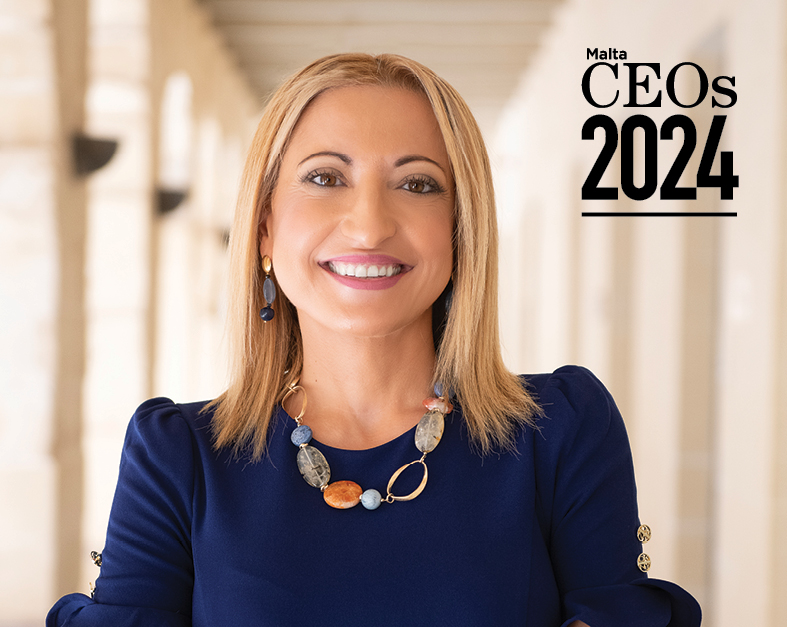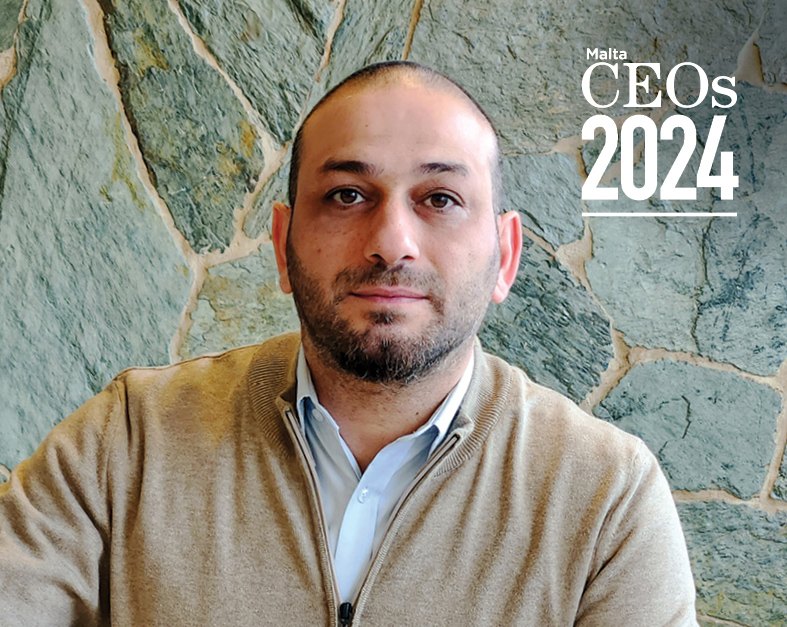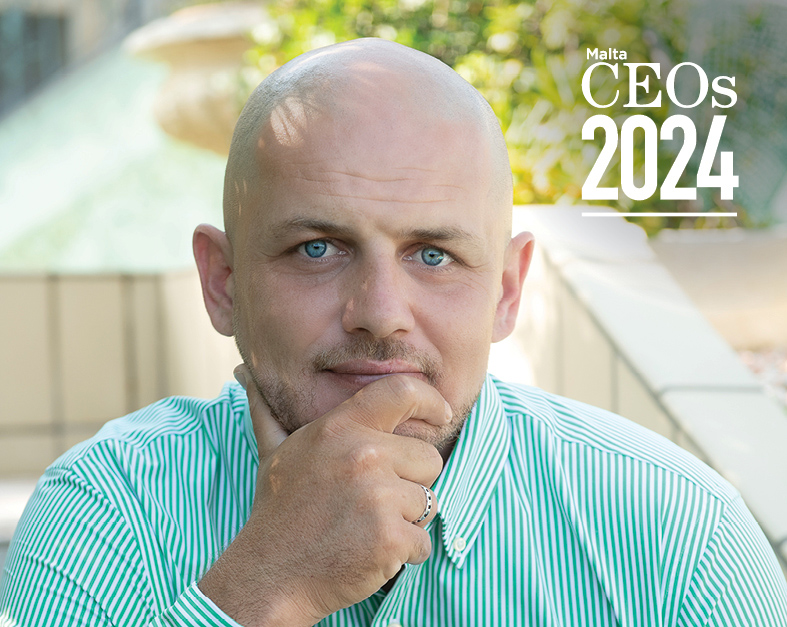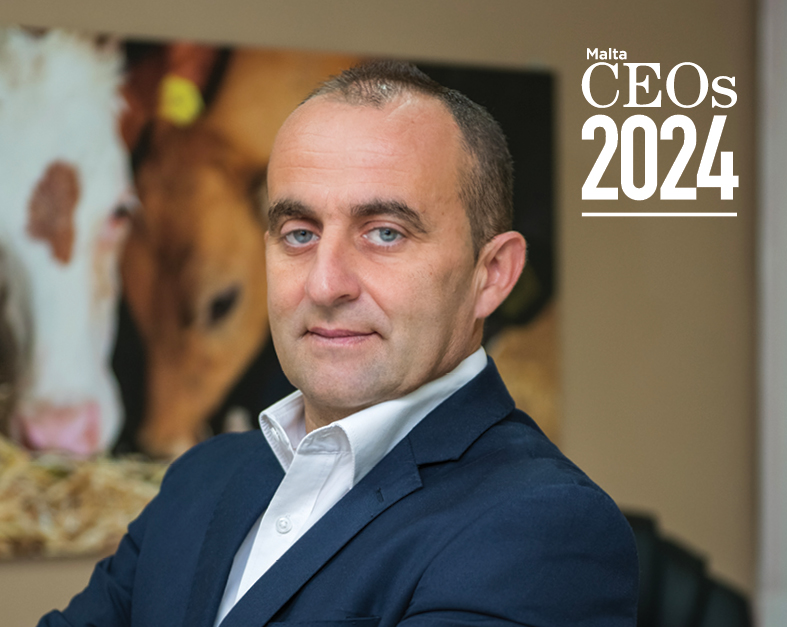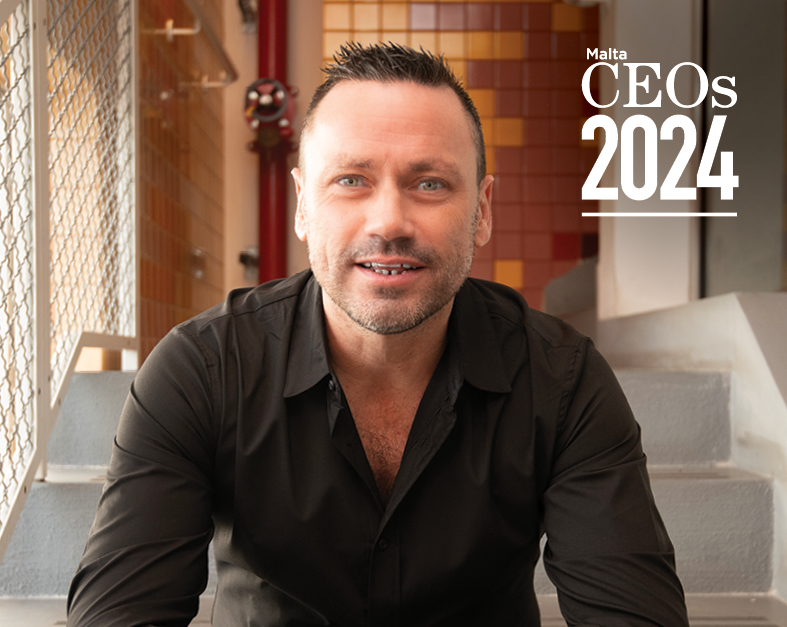Appointed CEO of the Malta Foundation for Human Resources Development (FHRD) in late 2021, Karen Muscat Baldacchino’s background lies in event organisation. She views her role at the helm of FHRD as the perfect challenge, utilising all the experience she has gained to set and drive the organisational vision and operational strategy of the Foundation.
“I encourage maximum dedication and performance at the Malta Foundation for Human Resources Development (FHRD),” says Karen Muscat Baldacchino, who has been at the helm of the foundation since late 2021.
She emphasises the importance of empowering her small yet dedicated team, rather than controlling them. “Micromanagement is not my style,” she smiles. “I strongly believe that this increases job satisfaction and commitment.”
Prior to her current position, Karen spent several years working at a top local venue, organising events – an experience she says enabled her to grow as a person, progressing from Junior Executive to Sales and Marketing Manager over a number of years. Eventually, it was time for a change. “I needed a new challenge, so I decided to go back to school and obtain my MBA. When the FHRD opportunity came along, I connected with the role immediately,” she reveals.

The main aim of the FHRD is the promotion of the development of human resources in Malta, Karen explains, affirming that “Malta’s richest resource is its people.”
Since taking the reins, the foundation has grown and developed, and today comprises five main branches. The first is the Association of HR Practitioners, through which member organisations receive an attractive set of benefits and can keep abreast of the foundation’s numerous happenings and offerings. The FHRD also organises a series of seminars and provides its own set of accredited professional training programmes. Moreover, it’s an authorised promoter for the University of Leicester, which offers academic programmes in several fields.
Then, the CEO continues, there is the HR Quality Mark, a standard developed by FHRD that acknowledges organisations for their effective HR practices. “The aim of the HR Quality Mark is to recognise organisations that place HR at the centre of their business through the implementation of various policies and strategies,” she maintains.
This all culminates in the FHRD’s annual HR conference, during which the foundation tackles relevant concerns and topics for the HR professional and which, last year, saw the launch of its new membership project. “The professional membership scheme,” Karen explains, “allows HR professionals to be recognised by the FHRD for their individual level of competence in HR,” and forms part of the FHRD’s mission to set the national standard on the development of human resources on the island.

“The scheme is three-tiered: the Associate Level (aimed at junior and mid-level professionals), the Fellow (aimed at senior HR professionals), and the Student membership, because we believe it is equally important to invest in students who are the future HR professionals,” she continues.
Looking back on 2023, Karen describes it as a very good year for the FHRD, highlighting increases in the number of students enrolling in the foundation’s programmes and of organisations joining as corporate members. “I find great satisfaction in witnessing the enthusiasm of our members as they collaborate with us,” she smiles, noting that the team also developed two new work resident programmes and organised several events throughout the year, with the annual conference being the largest in attendance to date.
Speaking of opportunities created – both for the FHRD and the Maltese HR community – she points to numerous collaborations with members on events, dealing with a wide range of subjects, from how to approach employees with addiction difficulties to addressing shortages in the talent market. “It is very important to us to create opportunities for people to speak out and voice their concerns,” Karen affirms.
Meanwhile, the team also embarked on an extensive exercise to revamp the HR Quality Mark, the CEO says. “We have updated it and are now evaluating organisations on six content areas, namely strategy, talent, engagement, career, efficiency, and relations. The outcome has been very successful.”

Looking ahead at her plans for this year and beyond, Karen says that her aim is always to add value for FHRD’s corporate members, so her focus will continue to be on finding the best ways to do so, while raising awareness of the value that comes with the new membership scheme. Meanwhile, she continues, “I would like to see more students completing their studies with us next year, either through our programmes or the University of Leicester. We have also partnered up with the Academy to Innovate HR (AIHR), based in the Netherlands, and I hope that more individuals will register for their programmes. Indeed, as a result of this collaboration, students enjoy discounted rates.”
In 2023, FHRD also joined the European Association for People Management (EAPM), which is a network within the EU that addresses human resource management. “FHRD now represents Malta in this association and, through it, I hope to bring even more value for our members,” she shares, adding, “there are a lot of opportunities for us within the HR field – the most critical factor is to address them and to listen to the feedback we receive, so as to continue to offer value.”
Lamenting on a tricky few years for the business community due to the pandemic, Karen highlights one silver lining: COVID-19 has given renewed importance to HR. “The pandemic has expanded the role of HR,” she posits. “If HR didn’t already influence the C-suite before the pandemic, it does now. HR teams operated in crisis mode for much of 2020 and the first half of 2021, figuring out how employees could work from home, trying to provide extra mental and physical health support, and working more than ever on C-level strategies for keeping their organisations functioning. As the dust continues to settle and companies adjust to a new normal, the role of HR has fundamentally changed.
“Indeed, in this era of flexible work and evolving challenges, HR professionals are faced with the opportunity to define and develop new skills and processes to meet changing expectations effectively, with the ultimate aim of ensuring that a company’s human capital is seriously engaged, inspired and committed. It’s productive to feel joy at the workplace,” she contends.
This, of course, correlates perfectly with FHRD’s mission in 2024: to reaffirm itself as the leader in HR development locally. “We aim to be a recognised body for developing standards in the advancement of the HR profession in Malta, and I want FHRD to be the true thought leader in every aspect related to HR,” the CEO concludes.
This article is part of the serialisation of 50 interviews featured in MaltaCEOs 2024 – the sister brand to MaltaCEOs.mt and an annual high-end publication bringing together some of the country’s most influential business leaders
‘We have become known for our reliability, expertise & environmental responsibility’ – Director Mattheus Buyukkaya
Mattheus began his career in renewable energy as a junior, and progressed until he decided to launch his own renewable ...
‘My goal is to contribute to a greener future for generations to come’ – CEO Namik Kemal Ozden
Namik believes that you must always know who you are doing business with, whether that means visiting your suppliers, meeting ...
‘Going from being a farmer to becoming a CEO has been quite a journey’ – CEO Brian Vella
As leader of the Malta Food Agency, Brian asserts that consumers remain ‘extremely loyal’ to local produce.
‘Loyalty is important, not just as a measure of client loyalty, but as a tangible form of positive feedback’ – CEO Luke Todd
As a business leader, Luke favours smaller teams, allowing greater control of culture and unique selling propositions.


